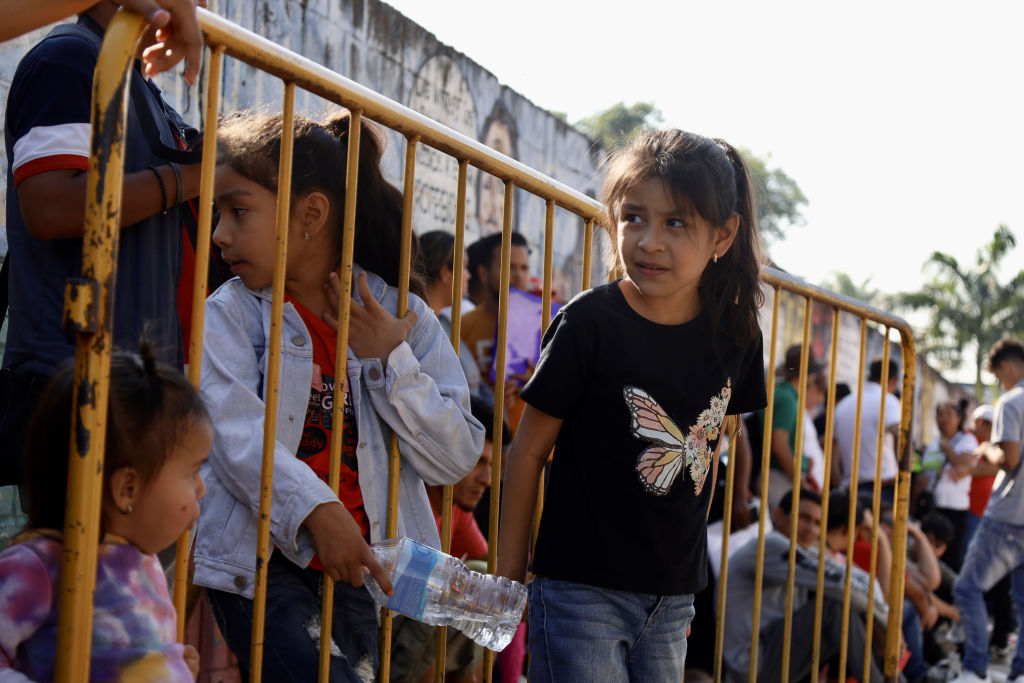U.S. works to "harden" border at Tijuana to prepare for migrant caravan
GUADALAJARA, Mexico — The U.S. government said it was starting work on Tuesday to "harden" the border crossing from Tijuana, Mexico, to prepare for the arrival of a migrant caravan leapfrogging its way across western Mexico.
Customs and Border Protection (CBP) announced it was closing four lanes at the busy San Ysidro and Otay Mesa ports of entry in San Diego, California. It said the closures were needed "to install and pre-position port hardening infrastructure equipment in preparation for the migrant caravan and the potential safety and security risk that it could cause."
On Thursday, 1,100 Marines from Marine Corps Base Camp Pendleton in California were deployed to support border security, CBS San Diego affiliate KFMB reported. They were primarily tasked with installing concertina wire and pre-positioning jersey barriers, barricades and fencing.
"CBP has been and will continue to prepare for the potential arrival of thousands of people migrating in a caravan heading towards the border of the United States," Pete Flores, director of San Diego field operations for CBP, said in a statement.
The caravans became a campaign issue in U.S. midterm elections and President Trump has ordered the deployment of over 5,000 military troops to the border to help fend off the migrants. Mr. Trump has insinuated without proof that there are criminals or even terrorists in the group.
To the thousands of Central American migrants making their way toward Mexico's Pacific coast state of Nayarit, the prospect of meeting a hostile reception at the border is nothing new. After a month on the road, through three countries, migrants like Maribel, 22, from La Ceiba, Honduras, are used to tough conditions.
Maribel, who did not want her last name used for fear of reprisals in Honduras, pushed a baby carriage with her 1-year-old daughter while her husband pushed another with their 3-year-old son along a highway leading from Guadalajara to the Nayarit capital of Tepic.
"We are well aware of everything Trump has been saying," said Maribel. "Let them close whatever they want to close, but we are going to get through anyway."
The thousands of Central American migrants left shelters in Guadalajara early Tuesday and were taken by bus to a highway tollbooth to wait for rides to their next destination. Most appeared intent on taking the Pacific coast route northward to the border city of Tijuana, which was still about 1,350 miles away. The migrants have come about 1,500 miles since they started out in Honduras around October 13. While the caravan previously averaged only about 30 miles a day, the migrants are now covering daily distances of 185 miles or more, partly because they are relying on hitchhiking rather than walking.
A smaller, second caravan began arriving in Mexico City on Monday. A third caravan was heading toward the capital.
Many say they are fleeing rampant poverty, gang violence and political instability primarily in the Central American countries of Honduras, Guatemala, El Salvador and Nicaragua.





